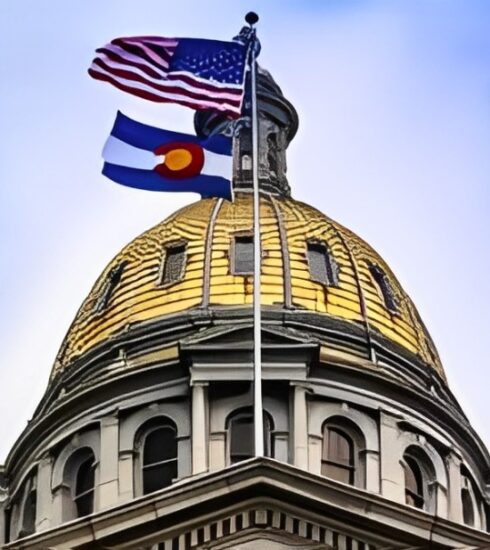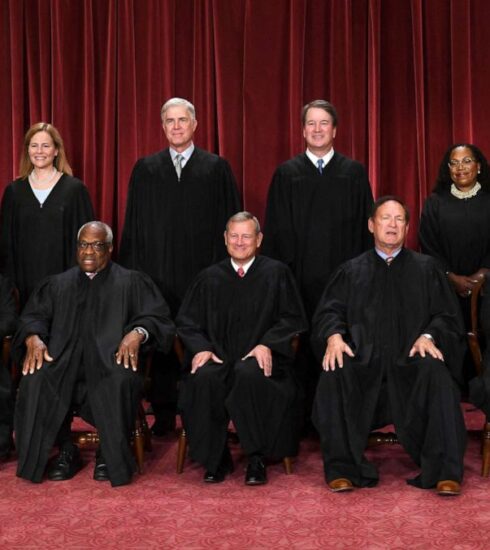By now, African leaders would have gotten over the shock that they must have felt after former US Defense Secretary, Mark Esper revealed in a recently released excerpt from his new memoir.

Zimbabwe believes the United States government
isn’t doing enough to buffer up its relations with
Africa. Photo- wikipedia.
The former Pentagon supremo details a number of outlandish proposals that former US president Donald Trump lodged with him in the forthcoming book, A Sacred Oath: Memoirs of a Secretary of Defense During Extraordinary Times. Chief among those proposals as it relates to Africa, was the call by Trump to shut down the embassies in Africa and “bring our people [US diplomats] back home.”
Now, that right there is a scary thought. It begs the question though: would that proposal have seen the light of day if Trump was still in office? We probably will never know, but that a US president, who is expected to be highly cerebral, informed and enlightened, would come forward with such a proposal has left many people in America and Africa aghast and bemused. Of course, Trump has never pretended to be in love with Africa by any stretch of the imagination and has shown little, if any, fondness for Africa or any of its more than 50 countries. This is observable from his earliest days in politics, and that contempt is perhaps where one of his craziest notions comes from — shutting down all of the US embassies in Africa.
In 2018, Trump infamously referred to African nations and Haiti as ‘shithole countries’ during a discussion about the flow of immigrants to the US and how he planned to stem the tide. Of course, everyone, from the African Union to the UN and many politicians across Africa and the Caribbean nations, was outraged at those remarks. The remarks confirmed to the whole world that Donald Trump harbors racism.

revealed the going ons of the Trump administration
in his new book. Photo – foxnews.
The revelation from Esper also shows Trumps as ignorant and having little or no knowledge about the intricacies of diplomacy and how crucial it is for America to maintain strong ties with Africa. First off, what Trump failed to realize is that implementing such a move would have hurt the US as well as Africa, because it seems that aside from his obvious racial demeanor, he felt the US had nothing to lose by cutting diplomatic ties with the African continent.
Between 2017 and 2021 when Trump was in office, America’s trade exports to Africa stood at 2.3 trillion US dollars, while its import trade within that same time frame stood at 2.4 trillion US dollars according to statista.com.
Since 2009, China has eclipsed the US as Africa’s biggest trading partner, but the fact is that Trump didn’t realize that cutting diplomatic ties with Africa was akin to setting off an explosive device in his own backyard. Not only would the impact have been felt on the African continent, but it would also have taken away about $54 billion of US FDI (foreign direct investment) stock, resulting in massive job losses for Americans in the United States and also alienating an entire continent in the battle against climate change (not that Trump cares much for that either).
For proper context on how the move would have affected America in respect to jobs, The Center for Strategic and International Studies, a think tank based in Washington, D.C. came up with a paper on why Africa matters to US cities in 2021 and states in the report that Boeing, which is one of the largest employers in Seattle and St. Louis, represents nearly 70 percent of the airplane market currently in service across the continent. In Wichita, known as the flight capital of the world, Bombardier and Textron sell aircraft and aviation services to customers in sub-Saharan Africa.

President (R) Xi Jinping have overseen their
countries efforts to increase their influence on the
African continent.
It also states that many U.S. companies see Africa as a key part of their global portfolio. Exxon-Mobil, headquartered in Dallas, has a diverse portfolio in Africa, including investments in Nigeria and Angola, as well as a stake in Mozambique’s massive liquefied natural gas (LNG) project. For Atlanta-based Coca-Cola, Africa comprised 20 percent of sales by volume for the Europe, Middle East, and Africa division in 2018.
The CEO of Coca-Cola, James Quincey reinforced this at an event in Georgia in September 2020 where he was quoted as saying “Having operated in Africa for over 90 years as a local business in every country, we believe Africa is a region that will increasingly influence the growth trajectory of our global businesses in just a few years.”
The report states further that Western Union, headquartered in Denver, services more than 500 locations in Nigeria as part of its nearly 21,000 agent network in Africa. Anheuser-Busch InBev in St. Louis committed in 2019 to invest up to $400 million at its brewery in Nigeria. Also in 2019, Microsoft announced plans to spend more than $100 million to open offices in Nairobi, Kenya, and Lagos, Nigeria. Amazon Web Services recently established its first Africa data center in Cape Town and is hiring 3,000 people in South Africa to provide support to customers in North America and Europe.
These examples listed above are just one of the many US business interests scattered all over Africa, yet Trump was willing to put all that in jeopardy. The feeling amongst the business class in the US right now irrespective of their party affiliations must be one of relief and the inescapable notion that they definitely dodged a bullet when Trump lost out to Joe Biden in the 2020 elections.
It’s a worrying situation that so many Americans like Trump generally have one of two images of Africa: a primitive home of famine, disease, and civil war, or an idyllic motherland. Of course neither image is entirely correct. While Africa does have more than its fair share of problems and is the homeland of many Americans, it is a diverse continent of more than 50 nations and hundreds of ethnicities and languages; Africa is also the youngest continent in the world with a host of possibilities for the future.
Going by the way a lot of his supporters violently stormed the US Capitol building on January 6 2021 at his bidding, there’s no escaping the fact that the ideals he preaches appeals to a large number of Americans which ultimately makes them closet racists.
Charles A. Ray, a former American ambassador to Zimbabwe stated in a paper published on the website of the foreign policy research institute in January 2021 that the US government ought to deepen its ties with the African continent else it risks losing its influence on the continent to its competing superpowers China and Russia.

A lot are worried over the inability of African states
to present a common front in condemning the war.
Photo-AlJazeera.
In his submission, he posits that as the world’s second-largest economy, and with its increasing participation in international activities, China will continue to be a factor in Africa for the foreseeable future. This, however, is more a problem for the nations of Africa than it is for the rest of the world. The West can compete best by outperforming China in areas of strength by providing those goods and services that are unquestionably superior, and let African governments decide how to deal with China and its often-predatory lending practices and the Chinese tendency to import Chinese workers for its projects and investments rather than hiring locals. At the same time, Russia, which did not completely turn away from Africa at the end of the Cold War as many in the West sometimes believe, must still be considered a significant factor on the African landscape. In an effort to compensate for Western sanctions and to counter U.S. and Western influence, Russia is once again increasing its presence on the continent. Russian mercenaries, in exchange for diamond mining rights, have trained military forces in the Central African Republic, raising concerns about human rights abuses. Of particular concern is the presence of the Wagner Group, a private military company associated with Yevgeny Progozhin, a Russian oligarch with close ties to Vladimir Putin, who was indicted in the United States for trying to disrupt the 2016 U.S. elections. To date, Russia has, in addition to seeking basing rights, signed military cooperation agreements with 28 African nations. Russian activity is a combination of military and commercial, with Progozhin at the center of both. From 2010 to 2018, Russia nearly tripled its trade with African countries. He also readily concedes that while the activities of both Russia and China in Africa are of concern, and should be closely monitored, the US needs to ramp up its presence on the continent so as to cultivate a profitable relationship that is mutually beneficial to both parties.
Donald Trump from his first day in Washington to his last used his presidential megaphone to criticize a long list of perceived adversaries, from the news media to members of his own administration, elected officials in both political parties and foreign heads of state. Most of his views were so controversial and divisive that the social media app Twitter had to permanently ban him from their platform.
The outlandish nature of his proposal to shut down all its embassies in Africa portrays Trump as tone deaf to the rapidly growing influence of Russia and China and would have severely weakened America’s global standing and influence if the proposal had seen the light of day. He clearly failed to realize that Africa is more than a potential American consumer market; it has without any doubt the potential to be a manufacturing center to meet American consumer needs, as well.
Even without the proposal sailing through, there’s no doubt whatsoever that America lost Africa for four years under Donald Trump and it’s up to the Joe Biden Administration to regain it.






